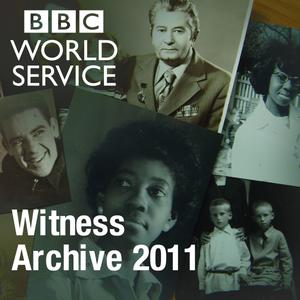
Witness History: Archive 2011
BBC
The story of our times told by the people who were there.
- 8 minutes 59 secondsMixed race marriage victory in US
In 1958, a mixed-race couple, Mildred and Richard Loving, were arrested and then banished from the US state of Virginia for breaking its laws against inter-racial marriage.
Nine years later, Mildred and Richard Loving won a ruling at the Supreme Court declaring this sort of legislation unconstitutional.
Witness speaks to the Lovings' lawyer, Bernie Cohen.
Image: Mildred and Richard Loving, pictured in 1967 (Credit: Bettmann/Getty Images)
8 October 2013, 10:30 am - 9 minutes 10 secondsGreensboro Lunch Counter Sit-ins
On 1 February 1960, four young black men began a protest in Greensboro, North Carolina against the racial segregation of shops and restaurants in the US southern states.
The men, who became known as the Greensboro Four, asked to be served at a lunch counter in Woolworths. When they were refused service they stayed until closing time. And went back the next day, and the next. Over the following days and months, this non-violent form of protest spread and many more people staged sit-ins at shops and restaurants.
Witness hears from one of the four men, Franklin McCain.
7 October 2013, 12:30 pm - 8 minutes 54 secondsThe Freedom Riders
The Freedom Riders were civil rights activists who rode on buses, testing out whether bus stations were complying with the Supreme Court ruling that banned segregation.
Listen to Bernard Lafayette Junior, an eyewitness to how Martin Luther King managed to prevent inter-ethnic bloodshed on a night of extreme tension during the battle against segregation in the American South.
Picture: A group of Black Americans get off the 'Freedom Bus' at Jackson, Mississippi, Credit: William Lovelace/Express/Getty Images
7 October 2013, 10:30 am - 8 minutes 58 secondsNelson Mandela's Autobiography
*** This programme was first broadcast on 25 October, 2011 ***
In the mid 1970s Nelson Mandela began writing his autobiography in prison, on Robben Island.
Mac Maharaj was one of the prisoners who helped edit and conceal the manuscript.
Photo: Associated Press, Nelson Mandela before he was imprisoned.
4 October 2013, 4:00 pm - 9 minutesANC Bomb
The armed wing of the ANC party took its first violent action in 1961, when a bomb was planted at municipal offices in Durban.
Ronnie Kasrils explained what happened that day.
(Image: Ronnie Kasrils in 1961. Credit: Ronnie Kasrils)
4 October 2013, 2:00 pm - 9 minutes 14 secondsApartheid in the 1950s
A snapshot of the attitudes and emotions on both sides of the racial divide as the South Africa authorites cemented the foundations of Apartheid in 1957.
2 October 2013, 8:00 am - 9 minutesThe Voyage of the Empire Windrush
In 1948 nearly 500 pioneers travelled from the Caribbean on the Empire Windrush. The passage cost £28, 10 shillings.
Passenger Sam King describes the conditions on board and the concerns people had about finding a job in England - and what life was like in their adopted country once they arrived.
1 October 2013, 10:00 am - 9 minutes 5 secondsUS troops in Iraq
US troops left Iraq earlier this month, well before their deadline of 31 December.
We hear from one American soldier who remembers when they first invaded the country, almost nine years ago.
Photo: John Crawford and a colleague in Iraq.
30 December 2011, 9:00 am - 8 minutes 52 secondsThe Creation of Tetris
In 1984 one of the most popular computer games ever was invented in Moscow.
Hear from Alexey Pajitnov, the Russian who created it, and Henk Rogers, the American who helped to sell it around the world.
Photo: Henk and Alexey.
29 December 2011, 9:10 am - 9 minutes 3 secondsEnid Blyton and the BBC
The children's writer Enid Blyton, was one of the most popular authors of the 20th Century.
Books such as her Famous Five series were read by millions across the world.
But Blyton was reviled by some senior managers at the BBC, who effectively banned her work between the 1930s and 1950s.
Simon Watts uses audio and written archive to chart the difficult relationship between the author and the national broadcaster.
PHOTO: Hulton Archive/Getty Images.
28 December 2011, 9:00 am - 8 minutes 59 secondsThe release of Sakharov
In December 1986 the Soviet dissident Andrei Sakharov was allowed to return to Moscow.
He had spent seven years in internal exile.
His release had been ordered by the reforming Soviet leader Mikhail Gorbachev.
Photo: AFP/Getty Images
27 December 2011, 9:15 am - More Episodes? Get the App
Your feedback is valuable to us. Should you encounter any bugs, glitches, lack of functionality or other problems, please email us on [email protected] or join Moon.FM Telegram Group where you can talk directly to the dev team who are happy to answer any queries.
 Dan Snow's History Hit
Dan Snow's History Hit
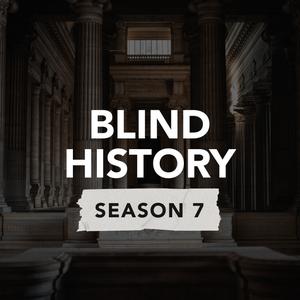 Blind History
Blind History
 The Bomb
The Bomb
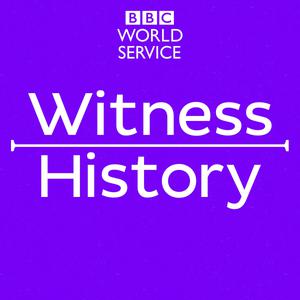 Witness History
Witness History
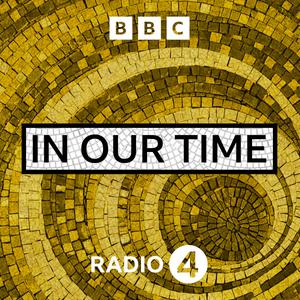 In Our Time
In Our Time
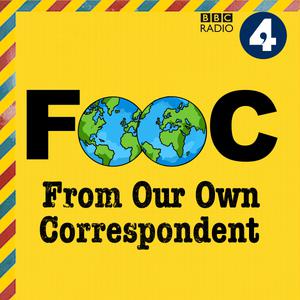 From Our Own Correspondent
From Our Own Correspondent